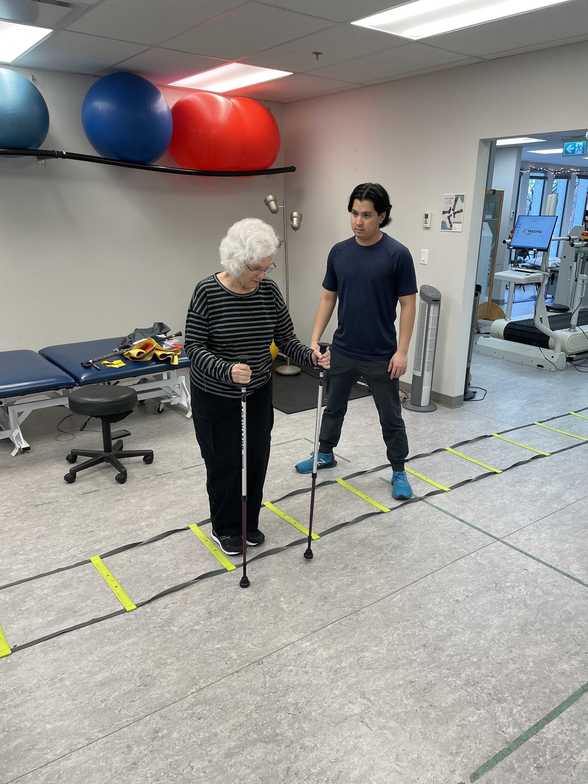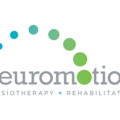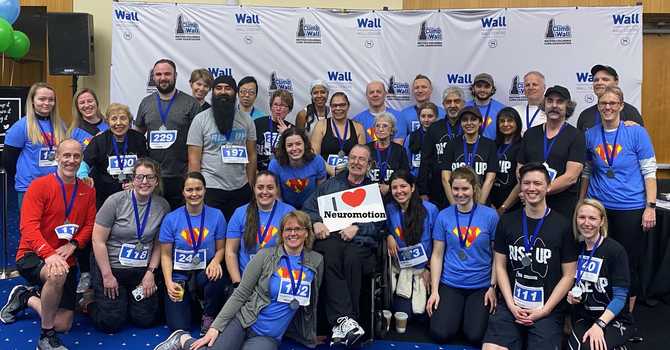
Neurological conditions and diseases pose significant challenges to individuals, affecting their mobility, coordination, and overall quality of life. In the journey towards recovery, multidisciplinary approaches are recommended, with kinesiologists playing a pivotal role. In this blog post, we highlight the benefits that kinesiologists bring to clients with neurological conditions and diseases. Personalized Exercise
- Programming: Kinesiologists excel in designing tailored exercise programs to address the unique needs of patients with neurological conditions. Whether it's stroke rehabilitation, spinal cord injury management, Parkinson's disease, traumatic brain injury, multiple sclerosis, ALS, cerebral palsy, or Guillain-Barré syndrome, kinesiologists develop individualized routines to improve mobility, strength, balance, and coordination. These programs are crafted to promote recovery, enhance functional abilities, and optimize overall well-being.
- Functional Movement Assessment and Analysis: Through in-depth movement assessments, kinesiologists analyze functional movement patterns to identify impairments, compensations, and limitations. Whether assessing gait disturbances in Parkinson's disease, muscle weakness in ALS, or spasticity in cerebral palsy, kinesiologists employ comprehensive analysis techniques to guide targeted interventions aimed at restoring optimal movement patterns and functionality.
- Collaboration with Multidisciplinary Teams: Effective rehabilitation of neurological conditions requires collaboration among various healthcare professionals. Kinesiologists serve as integral members of multidisciplinary teams, collaborating closely with physiotherapists, occupational therapists, speech therapists, and physicians. Their expertise in biomechanics and movement science contributes to the development of holistic treatment plans tailored to the individual needs of each patient, ensuring coordinated and integrated care.
- Motivation, Education, and Support: Kinesiologists play a crucial role in motivating, educating, and supporting patients throughout the rehabilitation process. Whether it's setting realistic goals, tracking progress, or providing encouragement, kinesiologists empower patients to stay committed to their recovery journey. By imparting knowledge about their condition, rehabilitation goals, and the importance of physical activity, kinesiologists foster a sense of self-efficacy and resilience in patients, enhancing their motivation and adherence to treatment.
- Long-term Health Promotion and Injury Prevention: Beyond the acute phase of rehabilitation, kinesiologists promote long-term health and wellness for patients with neurological conditions. Through education on proper movement mechanics, ergonomic principles, and strategies for injury prevention, kinesiologists empower individuals to maintain and improve their functional abilities over time. By promoting an active lifestyle, healthy habits, and injury prevention strategies, kinesiologists help optimize function and enhance quality of life in the long term
In the realm of neurological rehabilitation, the expertise of kinesiologists is integral in the overall collaboration effort. From personalized exercise programming and functional movement assessment to collaboration with multidisciplinary teams, motivation, education, and long-term health promotion, kinesiologists play a multifaceted role in enhancing the recovery and well-being of patients with neurological conditions. By harnessing the principles of movement science and exercise physiology, they empower individuals to overcome challenges, regain function, and embrace life to the fullest extent possible, demonstrating their commitment to promoting movement and resilience in the face of neurological challenges.





